
What Is A Fractional CMO? And Why More Businesses Are Hiring One
Rise of the fractional CMO – you don’t always need more headcount to get more horsepower

Rise of the fractional CMO – you don’t always need more headcount to get more horsepower

Here’s why if you’re scaling in 2025, your smartest hire might not be a hire at all.

We decided to mark our 21st anniversary a little differently…
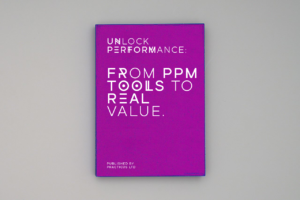
Unlock the real value of PPM tools with insights from industry experts. Learn how to optimize and sustain PPM processes for consistent, visible, and valuable results.

Practicus publishes candidate diversity report on the last 12 months of placements.

Practicus publishes candidate diversity report on the last 12 months of placements.
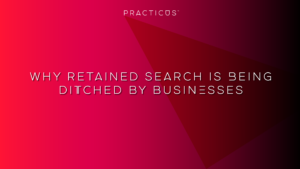
Companies are shifting from retained search to newer contingent search and hybrid models in a changing leadership market. Here’s why…

AI is set to change the role of all Chief Officers but perhaps less discussed is the particular impact on Chief Financial Officers (CFOs).
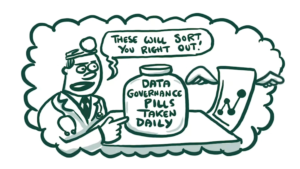
Data culture: As the AI juggernaut gains speed and the pressure to automate builds, how curious that something so advanced could be jeopardized by something so foundational. Good to know that some of our best data leaders are tackling this intractable problem with a more sophisticated and multi-dimensional approach.

Practicus recently hosted a PMO roundtable that brought together project management leaders from diverse industries to discuss the evolving landscape of project management methodologies and their alignment with strategic business objectives.

It’s been a good run and we bow out on a high but we no longer feel comfortable asking the interims we know to complete the IIM survey.

Discover how to set up a Project Management Office (PMO) to streamline project management, enhance efficiency, and drive business value. This guide covers the essentials from initiation to continuous improvement, providing a roadmap for establishing a PMO that aligns with organisational goals and ensures project success.

In the latest episode of Practicus’ PMO podcast, we delve into the crucial role of portfolio prioritisation within the PMO. This episode promises to enhance your understanding of how effective prioritisation can maximise returns from investments in projects and business change.

How to lead a multigenerational workforce in today’s economy. The competing demands of different generations is not a background problem. It is the opportunity that needs to be seized
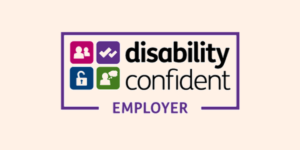
We are pleased to announce that we have reached level 2 of Disability Confident. This means we are now more than “disability confident committed”, we are officially a Disability Confident Employer!

Practicus has been recognised as one of the UK’s Best Workplaces in Consulting & Professional Services.

Project portfolio management smooths the path to successful delivery of business strategy and planning
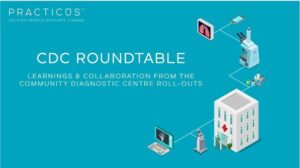
Roundtable report on the solutions to the current challenges with creating and rolling out Community Diagnostic Centres (CDCs).

A Behind-The-Scenes Look at UK’s NHS Vaccine Rollout and the critical role played by Practicus

Celebrating the NHS at 75 with a summary of some key innovations that have saved lives and put NHS at the forefront of innovation.

Practicus team volunteers to help Launchpad produce seasonal food for local food banks as part of drive to help homelessness – Taking our CSR ambitions seriously.

We all know the importance of good sponsors for projects and programmes to succeed. But we’ve all come across sponsors who do as much to hinder as they do to help change and transformation.

PMOs are vital in ensuring that projects stay on track efficiently, and effectively. Trust our PMO expertise & tools to keep everything in one place & maximise productivity, productivity and ensuring alignment with your organisation’s goals.

Over the last few years, Practicus has been witnessing a remarkable and sustained increase in its permanent recruitment services. Focussing on senior and specialist positions, the team have delivered growth of more than threefold over the last four years.

We are thrilled to announce that Practicus has made the Top 5 of the Institute of Interim Management (IIM) Survey 2023. Making it not just for the first, second or third time, but for the seventh consecutive year!

Discover the benefits of hiring an interim manager for your startup. Get flexible and affordable expertise in sales, marketing, finance, HR, and more, exactly when you need it.

A quick run through some of the tech innovations shaping our lives since King Charles was born.

Practicus celebrates leap in 2023’s Best Workplace rankings, highlighting our dedication to employee wellbeing and exceptional work culture
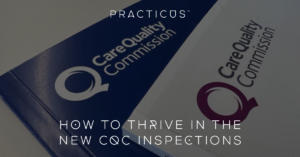
Getting ready for CQC inspection framework changes with interim professional support to avoid all the pitfalls that can impact your ratings.
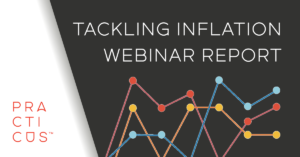
How to tackle inflation for businesses. Key themes and takeaways from our webinar Webinar in March 2023.

When supporting clients through business change, the role of account management cannot be overstated.

For interim management, 2023 is shaping up to be a great year for women in leadership.

Practicus publishes candidate diversity report on the last 12 months of placements.

What is executive interim management? How does it differ from vanilla interim management, and how does it compare with Executive Search?

Interim manager meaning? As with so many things, the meaning is heavily dependent on the context. But in all cases, ‘interim manager’ means a person charged with conducting…
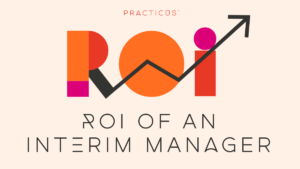
How do you measure the ROI? If you want to bring it down to ‘brass tacks’, the ROI of an interim manager is easier to calculate than it is for many permanent positions.

By Practicus – 30th August 2022 Our Health and Social Care team has grown so we can help more of our clients get access to our exceptional network of talented interims

Interim managers provide a unique set of benefits and advantages due to their individual experience and expertise and the nature of the contracting method.

Why a marketing reset is needed and how potential barriers can be overcome. Here we outline the path and the benefits of using an Interim expert with tried and tested experience of delivering results.

What is an interim manager role? With so much variety in the work of interim’s and their uses by clients, we look at defining the role they play in the modern workplace.

Experienced Managers retiring from the NHS are increasingly seeking interim roles offering the flexibility in work engagement they couldn’t enjoy before.

What is an interim manager? It seems to be one of the most misunderstood terms in the hiring world. It involves some of the most senior, trusted and capable talent available. Yet many HR and Procurement functions have a habit of treating it like they do unskilled temporary recruitment.

The need for workforce action could not be more acute. This includes the need to transform the way the NHS delivers patient care, empowers its people and cares for their wellbeing.
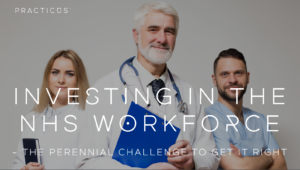
The need for workforce action could not be more acute. This includes the need to transform the way the NHS delivers patient care, empowers its people and cares for their wellbeing.

By Practicus 19th May 2022. Our account managers are there to provide a deeper level of collaboration – to live and breath your values, convey your purpose and give additional support
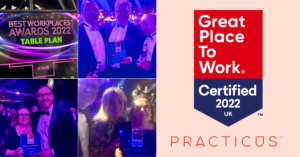
Practicus is pleased to announce that we have been recognised at the Best Workplaces Awards 2022. Officially Practicus is now the 57th best small workplace in the UK.1 This follows

Considerations from the past to help make integrating social care and healthcare in the new NHS ICS structures eaiser

We’ve attempted to climb the endless mountain of Google’s PMO questions to bring you the very peak of stupid when it comes to PMO queries. And then, rather foolishly, we’ve attempted to answer them.

This story charts the experience of how an Interim helped an independent healthcare provider adopt a digital transformation programme to propel its long-term growth strategy.

The most common reason why PMO as a Service is chosen is because the existing PMO has lost its way or does not yet exist. But there are plenty of other reasons too.

This story charts the experience of how an Interim helped an independent healthcare provider adopt a digital transformation programme to propel its long-term growth strategy.

Each year, Practicus, like many other organisations and people around the world celebrates March 8th as International Women’s Day (IWD), but how did this commemoration come about and why on this particular day?

Addressing health inequalities is again becoming a high-priority challenge at national level – and as a society, the growing divergence in rich-poor life expectancy should arguably concern us all.

As someone who places senior interim executives into companies, I often find that many still have a mythological fear about choosing interims for their big change programmes. It is partly
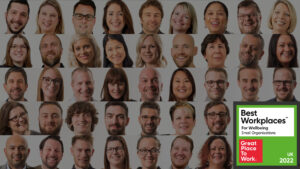
We are more than a little bit excited – to make the inaugural list of best workplaces for wellbeing in the UK
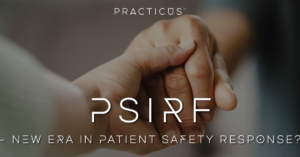
PSIRF is a new system for investigating or reviewing patient safety incidents, to improve patient safety and develop a. culture of learning

Practicus is delighted to announce that its “Covid-19 Vaccine Programme – Estates, Equipment, Consumables & Logistics (EECL) Workstream” has been shortlisted for Best Estates Optimisation Project at the HSJ Partnership Awards 2022.

You have heard of agile project management and software development. But have you heard of agile transformation? An executive overview of agile transformation with real-world examples by Practicus community member, Tim Lake.

Finding the right interim manager for your business needs is critical. To ensure you can effectively identify and qualify the right calibre of individual, you should build a business case with clear objectives and deliverables.

There are lots of benefits to working as an Interim, but despite all of the positives, by their nature short-term roles can also be very challenging. Below are some of the comments reported from our own interims.
The Data Files explores the rapidly evolving world of data, information and people.
A light-hearted limited series hosted by Barry Panayi (Chief Data Officer at John Lewis Partnership) and Tony Cassin-Scott (ex-CIO & CDO, now Advisor). They chat with some of the minds responsible for the past, present and future of the development of the data space and explore what’s worked, what’s not worked, and what the future might hold – both for organisations and for the data profession itself.

The PMO podcast is a four part series exploring the often under-looked role of project and programme management offices in realising a business strategy and delivering successful change and transformation.
Hosted by Practicus Co-Founder, Boyd Kershaw, the show seeks to champion the cause of PMO, to articulate what good looks like and change the way people look at the PMO as a function.
Sectors:
| Cookie | Duration | Description |
|---|---|---|
| cookielawinfo-checkbox-advertisement | 1 year | Set by the GDPR Cookie Consent plugin, this cookie is used to record the user consent for the cookies in the "Advertisement" category . |
| cookielawinfo-checkbox-analytics | 1 year | Set by the GDPR Cookie Consent plugin, this cookie is used to record the user consent for the cookies in the "Analytics" category . |
| cookielawinfo-checkbox-functional | 1 year | The cookie is set by GDPR cookie consent to record the user consent for the cookies in the category "Functional". |
| cookielawinfo-checkbox-necessary | 1 year | Set by the GDPR Cookie Consent plugin, this cookie is used to record the user consent for the cookies in the "Necessary" category . |
| cookielawinfo-checkbox-others | 1 year | Set by the GDPR Cookie Consent plugin, this cookie is used to store the user consent for cookies in the category "Others". |
| cookielawinfo-checkbox-performance | 1 year | Set by the GDPR Cookie Consent plugin, this cookie is used to store the user consent for cookies in the category "Performance". |
| elementor | never | This cookie is used by the website's WordPress theme. It allows the website owner to implement or change the website's content in real-time. |
| PHPSESSID | session | This cookie is native to PHP applications. The cookie is used to store and identify a users' unique session ID for the purpose of managing user session on the website. The cookie is a session cookies and is deleted when all the browser windows are closed. |
| viewed_cookie_policy | 1 year | The cookie is set by the GDPR Cookie Consent plugin to store whether or not the user has consented to the use of cookies. It does not store any personal data. |
| Cookie | Duration | Description |
|---|---|---|
| aka_debug | session | Vimeo sets this cookie which is essential for the website to play video functionality. |
| player | 1 year | Vimeo uses this cookie to save the user's preferences when playing embedded videos from Vimeo. |
| sync_active | never | Contains data on visitor's video-content preferences - This allows the website to remember parameters such as preferred volume or video quality. The service is provided by Vimeo.com. |
| Cookie | Duration | Description |
|---|---|---|
| _gat | 1 minute | This cookie is installed by Google Universal Analytics to restrain request rate and thus limit the collection of data on high traffic sites. |
| Cookie | Duration | Description |
|---|---|---|
| vuid | 2 years | Vimeo installs this cookie to collect tracking information by setting a unique ID to embed videos to the website. |
| _ga | 2 years | The _ga cookie, installed by Google Analytics, calculates visitor, session and campaign data and also keeps track of site usage for the site's analytics report. The cookie stores information anonymously and assigns a randomly generated number to recognize unique visitors. |
| _gid | 1 day | Installed by Google Analytics, _gid cookie stores information on how visitors use a website, while also creating an analytics report of the website's performance. Some of the data that are collected include the number of visitors, their source, and the pages they visit anonymously. |